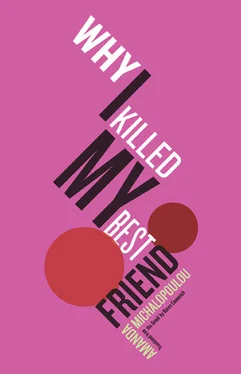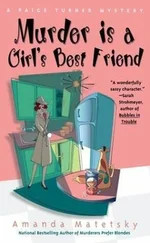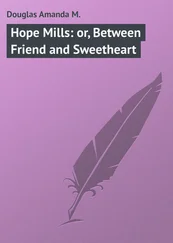I head underground somewhat gingerly. I take the stairs, not the escalator, which is packed with people. I walk to one side, keeping hold of the metal railing. You’re one of the prisoners in Plato’s cave , I tell myself. Don’t deny it. Find the limits of your cell . On the platform my palms start to sweat. A woman gives me a look that manages to be both absentminded and severe. The train is equally severe, rushing toward me at great speed. The platform shrinks and expands, pulsating: a heart, cruelly illuminated by fluorescent lights.
You’re in an imaginary prison , I say to myself. You’re Piranesi. You’re the one who has sketched this distorted perspective, this overflowing platform. You’ve drawn in those dark stairs climbing into the sky, you added whatever crossed your mind — corners, curves, labyrinths. Get in the train. Unbutton your jacket if you feel hot. Take the kids’ drawings out of your bag and fan yourself with them. Before you can count to ten, you’ll have reached your stop. Trouble breathing? Just remember that word from the dictionary. “Adaptation: inherited structural and functional characteristics that increase the probability of survival.” You’re seeing shadows? That’s only natural, the prisoners haven’t ever seen light. Hold on, hold on. This is the only way — from captivity to freedom .
I step out of the train car and set off almost at a run. The light rushes down the stairs to meet me. A warm, comforting light. It’s as if the staircase is a mouth spitting me out into the springtime Attic sky. I’m one of the youths in the Lascaux cave, who saw the prehistoric animals and is running to share the discovery with others. Or perhaps not. Not with others just yet. I’m a combination of the kids in Natasha’s and Panos’s drawings, doing cartwheels outside of the cave, with a rainbow overhead.
Specks of dust and freedom.
“Will it bother you if I go and stay with her?” Kayo reaches out and pulls me theatrically into his arms, as if we’re about to break into some impressive dance move. Only we just stand there, motionless. Then we sigh at exactly the same time. It happens to us all the time, and always makes us laugh. We call it our simultaneous orgasm.
“Was I too hard on you, Kayo? I didn’t really mean it when I told you to move out.”
“I’ve gotten used to you snapping at me. We’ve been doing that to one another forever. Don’t worry, this has nothing to do with you. Svetlana is having her baby and Anna can’t find anyone to take care of Daphne.”
“If she thinks she’s found a way of keeping tabs on me. .”
“Why should she want to keep tabs, Maria? Just let it go.”
I peel myself from his embrace and open the balcony door. I rest my knee in the gap between the bars. The mark made by my very first rebellion.
“You have no idea,” I say softly, as if talking to myself.
He packs a suitcase, whistling some pop song that’s all the rage on the radio. It’s perfectly clear, he’s happy he’s leaving. He oppressed me in New York, and I’m oppressing him here. Property is power, what can we do? You give someone a room to crash in but demand emotional ransom in return. And what about me? Am I happy he’s leaving? I’m not sure. I’ve never been alone in my life. There was always family, friends, bodies in motion that occupied space, talked, shouted, watched television, listened to music. Shared space, a communalism I believed in.
He hugs me at the door, suitcase in hand. He’s at his goofiest, to keep us both from crying. Deep down I’m afraid Kayo might never come back. He even took his foam Statue of Liberty.
“We’re meeting about the Attic Highway. Are you coming?” Anna’s voice breaks into one of her theatrical, smoke-infused coughs.
“We? What do you mean, we?”
“I joined your group, if that’s okay with you.”
“Congratulations. Where’s the meeting?”
“At my house. Tonight at six.”
“In Ekali? There’s a revolution brewing in the trenches of the northern suburbs?”
Anna sighs and hangs up on me.
That afternoon, without knowing why, I toss my old Super 8 in my bag. I haven’t used it since art school. There’s dust on the lens. Irini comes by in her ancient Autobianchi to pick me up. Kosmas will head straight to Ekali after class.
“Aren’t you the one who always says we should be open to others, no matter how different they are?” Irini says, shifting gears. The car shakes, and we shake with it.
“I don’t trust her.”
“But why? Can’t someone who’s rich have a social vision, too? Would you prefer for all the rich people to be on the other side? At the very worst, you can take their money and use it to print posters.”
“The issue isn’t money, it’s ambition. Anna’s a leader. If it were up to her, she would resurrect May 1968 and make herself prime minister in the process.”
Irini sighs. “Fine, and what would you be in that scenario? You’d just be the opposition party.”
She’s right. We’re all tired politicians. And now we’re headed for a bipartisan meeting at the prime minister’s residence.
We run into traffic on Kifisias Avenue; they’ve already started when we arrive. Anna is cross-legged on the floor, barefoot in a blue track suit. Kosmas and a classmate of his, Nikos, are sprawled on the sofa. Kayo seems already to have made himself at home — he’s in the kitchen, fixing martinis. The martini revolution.
“Okay, let’s do a recap,” Kosmas says. “Only by taking control of the streets can we have control over the city. That’s our basic point, right? The reason we’ve decided to occupy the Attic Highway is because we want to finally have control of our lives in this shitty town. Are we agreed this far?”
“The Olympic Games are a multinational corporation, and we don’t want it to bulldoze our grandmother’s house, to destroy her chicken coop,” Anna says.
“Her chicken coop? Did we miss something?” Irini asks.
“We’re trying to draft a text about the occupation,” Anna says, making room for her on the rug. “We’re just brainstorming.” It’s Anna’s favorite activity: sitting cross-legged on the floor, surrounded by people and papers, brainstorming.
“Where’s Daphne?” I ask.
“In her room.”
She’s in her cave, wrapped in a comforter with ducks on it. Each of the ducks is standing on a single foot, like a stork, on a tuft of grass surrounded by nothingness. There are markers everywhere, a trail leading from the door of her room.
“What are you coloring?”
“Oh, you came! I want to show you something.”
Daphne picks up her piece of drawing paper and holds it directly under my nose. The witch and her apprentice have been shipwrecked. They’re sitting on the pointed peak of an island. All around is the sea — blue and slightly torn here and there from Daphne’s habit of pushing down hard when she draws.
“What island is that?”
“It’s not an island, it’s a cave,” Daphne tells me, disappointed.
So the cave has come unstuck from solid land and is sailing off blissfully, like a raft on the waves. The witchlet isn’t hiding in the cave anymore. And why would she? The rain has stopped.
There’s a cloud of smoke over the leather sofas in the living room. I lean on the banister at the top of the stairs and watch as they gesture, smoke, argue about the four million cars produced each year and the pollution created by the capitalist system. The idea is to occupy the last of the shacks condemned by eminent domain along the proposed route of the Attic Highway, before the bulldozers come. To put up a fight.
The younger among us have already gone to visit the people living in those shacks. They’ve started a discrete awareness-raising campaign. They drink coffee with them, listen to their stories, and dream of the moment when they’ll go to live among these aging farmers, in a back room, a storeroom that’s been cleaned out for the purpose, under a hanging lantern or some old-fashioned trinket. They’re as navïe as I was when I packed my suitcase with roller-skates and eggs.
Читать дальше












